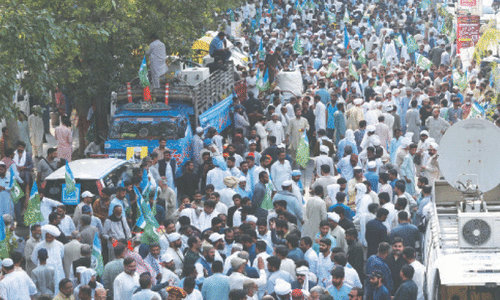
LAHORE: Perception about Pakistan is now changing in India, according to a Delhi-based expert who is currently in Lahore to attend the third Pakistan Urban Forum.
Vandana Mehra, whose father lived in Bannu (Khyber Pakhtunkhwah) before the partition, first came to Pakistan in 1999 with a lot of “myths” in her mind about the country.
“In less than a week, all these myths (got) busted. Pakistan was not what it was being projected as then (in India) and is certainly different from what it is being perceived there even today,” she maintains.
A graduate from the Delhi University, Ms Mehra’s work has been focused on reforming water utilities in Bangladesh, India and Pakistan. She assists governments in building their capacity to share and disseminate information, to communicate with its stakeholders, to provide training as required; contribute to capacity-building efforts in water and sanitation sector for the regional media, politicians and lead activities that participate in advocacy for inclusion of communications in all projects.
During her initial visits to Pakistan, there were `requests’ from her friends in India for videos of Urdu dramas being broadcast by the PTV. “Now we have a full-fledged TV channel broadcasting Pakistani dramas,” she says.
She says that the two countries still faced similar challenges.
“There should be rural-urban balance. Primarily, lack of adequate employment opportunities drive rural people to urban areas. Furthermore, rural areas lack better educational facilities and have no municipal services. When municipal services fail to deliver, it’s time for people to speak up what they want in an urban centre. Every city has concerned people who want to be involved in decision-making (on the issues) which concern them. For good governance, concerned citizens’ involvement is essential,” argues Ms Mehra.
“Keeping citizens abreast of such issues has become far easier now. They can be approached through cellular phones and social media,” she says.
Supporting Urban Forum, she says South Asia lacks such platforms where stakeholders, especially citizens, could be taken on board in matters pertaining to future setup in their areas. “We in South Asia require more such collaborative forums to have discussions about what services we want,” she stresses.
Published in Dawn, December 8th, 2015













































